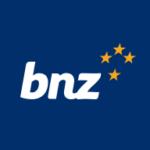Market update: what’s happening in markets?
2 Sep 2020
The first half of 2020 sure was a turbulent period for financial markets. Following a strong start to the year, which saw some global share market indices hit record highs, they did a sharp u-turn in mid-February as the rapid spread of COVID-19 put investors on edge. The subsequent falls saw share markets deliver their biggest one-day declines since the market crash of 1987, and volatility (a measure of the ups and downs in markets) rose to levels not seen since the Global Financial Crisis.
However, after a brutal first quarter, few would have foreseen the sharp turnaround that share markets have experienced. For some perspective, the S&P 500 Index (a barometer of US shares) went from its earlier 19 February high to being down 34% by the time of the market’s low, on 23 March. However, the Index has since rebounded 53% and is up 6% year to date (as at 24 August).
In fact, during the past few weeks, both the S&P 500 Index and the local NZX50 Index have fully-recovered the losses brought about by COVID-19, and have hit new all-time record highs. Meanwhile the tech-heavy Nasdaq Index is now up a staggering 66% (as at 24 August) from its recent low, and is also at a new record high.
Why the sharp rebound?
Share markets have been stronger on the back of unprecedented government action around the world. Governments have cut interest rates, provided loans and eased regulations. They’ve also provided support through relief packages, like the wage subsidy initiative in New Zealand, or direct payments to citizens, like those paid out in the United States.
Technology shares have been the biggest beneficiaries. For example, prominent technology companies such as Facebook, Amazon, Netflix and Shopify, as well as several software-as-a-service (SaaS) names such as Zoom Video Communications and Slack have emerged as clear winners on the increasing shift to online shopping and remote working – as social distancing has become the norm.
What does the future look like?
Despite the recovery in financial markets, the global economy appears several months away from any sustainable recovery. While some economic data has been better than expected, some data points have been worse. As such, the speed and nature of recovery remains quite uncertain.
Of course, any further waves of infections are likely to impede the shoots of recovery seen in economic activity. For example, the rate of COVID-19 infections in the US temporarily picked-up again in July, causing some states to pause in their efforts to come out of lockdown. Similarly, a number of countries in Europe have seen a resurgence in the number of new cases while, closer to home, Australia has seen the State of Victoria go into a more severe seven-week lockdown in an effort to stamp out a second wave of infections. And New Zealand too has seen its share of new cases, with a move back up the Government’s alert levels.
The quick intervention by governments to support economies should help to support markets in the near term. However, the amount of support and types of measures being used are untested, and no one really knows what impact they’ll have over the medium to long term. Furthermore, while hopes for a vaccine increase, no one can predict when one may become available or how effective it may be. Uncertainty is likely to remain high and so we should expect to see continued volatility in markets.
BNZ Investment Services Limited, a wholly owned subsidiary of Bank of New Zealand, is the issuer and manager of YouWealth and the BNZ KiwiSaver Scheme. Product disclosure statements for both products are available at bnz.co.nz or at any BNZ branch.
Investments in YouWealth and BNZ KiwiSaver Scheme are not bank deposits or other liabilities of Bank of New Zealand (BNZ) or any other member of the National Australia Bank Limited group. They are subject to investment risk, possible delays in repayment, possible loss of income and possible loss of principal invested. No person (including the New Zealand Government) guarantees (either fully or in part) the performance or returns of YouWealth or BNZ KiwiSaver Scheme or the repayment of capital. National Australia Bank Limited, the ultimate owner of BNZ, is not a registered bank in New Zealand but a licensed bank in Australia and is subject to the supervision of the Australian Prudential Regulation Authority.
The information in this article is provided for general purposes only, and is a summary based on selective information which may not be complete for your purpose. To the extent that any information or recommendations in this article constitute financial advice, they do not take into account your financial situation or goals and is not intended as personalised financial advice. While BNZ has made every effort to ensure that the information provided is accurate, you should not rely on this information to make any financial decision without first having sought advice specific to your circumstances from an authorised financial adviser. Neither BNZ nor any person involved in this article accepts any liability for any loss or damage whatsoever which may directly or indirectly result from this article.


